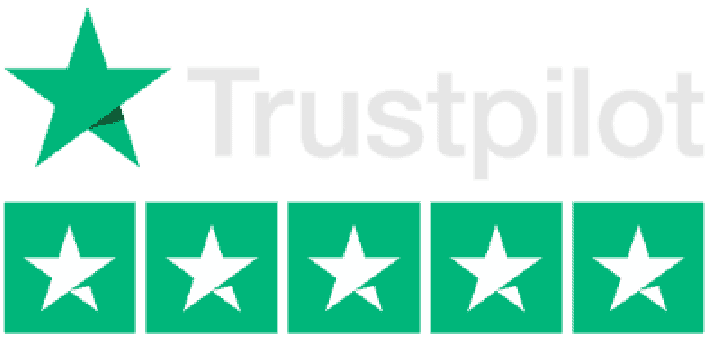Simply filling content with relevant keywords won’t guarantee high SEO rankings. The key to SEO is doing effective keyword research the right way. This means figuring out what users are looking for because that’s what Google cares about.
Well, how then does one know that they are on the right track?
The importance of comprehending user intent has always been a significant factor, not something that has become a question in 2024.
According to Google, SEO keyword research should be about what people search for. This means finding relevant keywords that match those searches.
The closer your content matches what people want to find, the higher it shows up in search results. Ignoring search intent can drastically reduce your ranking chances.
In this Koretechx keyword research guide, we’ll look at the best SEO strategies. We’ll also cover the tools you need to understand what users want and to get your pages to rank at the top.
First, Let’s Understand What Search Relevance is.

Search relevance is how well a given website aligns with what people seek in a search engine. Quite simply, it is how well the content of a given page relates to a specific keyword or search phrase.
For instance, when one types their query as ‘best chocolate chip cookie recipe,’ a search engine will aim at providing relevant web pages with chocolate chip cookie recipes. The content most related to the entered search terms is ranked higher on the search engine result pages.
This enhances the probability that users find the most relevant and accurate information they need to accomplish their search goals effectively, improving their satisfaction levels.
Now, let’s explore the best steps for effective keyword research.
1. Start with Automate Keyword Research to Save Time

Effective Keyword research is an important aspect of a great SEO campaign, but sometimes it can be time-consuming and costly. Due to this, marketers seek ways to automate the process. In this manner, they can save time on research and devote more time to strategizing and executing their plans. These make their work more efficient and effective.
Let’s explore the benefits of automation, the tools available, and some tips for maximizing your results.
Benefits of Automating Keyword Research:
- Saves Time: Automation tools can quickly analyze large amounts of data.
- Increases Accuracy: Automated tools reduce human error.
- Provides Insights: Automation can uncover keyword trends that might be missed during manual research.
Tools for Automated Keyword Research:
- Ahrefs: Offers comprehensive keyword research with competitor analysis and backlink tracking.
- SEMrush: Provides in-depth keyword research, topic research, and on-page optimization suggestions.
- Moz Pro: Features keyword research tools along with link-building and on-page optimization suggestions.
- Google Keyword Planner: A free tool from Google offering basic keyword research functionality.
- AnswerThePublic: Discovers user questions about your chosen keyword, helping you understand search intent.
Tips for Using Automation Effectively
- Start with Seed Keywords: To start the research, give your tool a few basic keywords related to your topic.
- Refine Your Results: Use filters to narrow down your list of keywords. Consider factors like how often they are searched and how difficult it is to rank for them.
- Prioritize User Intent: Don’t just pick keywords with lots of searches. Use tools like AnswerThePublic to determine why people search for those keywords.
- Combine Automation with Manual Research: While automation tools are helpful, don’t forget to research yourself. Think about what your audience wants.
- Track and Analyze Results: Monitor your keywords’ performance over time. This will help you adjust your strategy and stay current with new trends.
2. Find Trending SEO Keywords for Effective Keyword Research

Do you know that the highest spot on Google’s search results typically gets about 40% of the clicks?
It can be tough to rank for popular search terms because many people compete for them. But if you use trending keywords, you can get your content out before the big sites do. This helps you get noticed more easily.
But how do you find trending SEO keywords?
You can get a few keyword ideas simply by looking at Google’s search bar.
Nevertheless, here are 5 easy ways to find trending keywords:
- Google Trends: One of the free tools offered by Google allows a user to see the trend of a specific keyword. Go to the official website of Google Trends to know what people are searching for today. You can look for some terms and see if they are more used over time.
- Social Media: Twitter and Instagram are two social media platforms that can assist us in determining the number of hashtags, topics, and keywords that go round for a particular period. Twitter’s trending topics, Pinterest’s ‘Popular’ tab, and Reddit’s ‘Rising’ subreddit tab are among the best sources to find out what is trending in your interest. This can assist you in gaining ideas for what sort of keywords are popular for the various types in use today.
- Keyword Tools: Many SEO tools offer features for identifying trending keywords. Use tools like SEMrush, Ahrefs, or Ubersuggest. These tools can show you trending keywords and how they’re performing.
- News Websites: Stay updated on industry news and events. Trending topics often translate into search queries as people seek more information. Look for keywords in headlines, articles, and press releases related to your field. Browse news websites to find out what topics are being discussed. This can help you spot emerging trends.
Bonus Tip: Check what keywords your competitors are targeting. Website such as SpyFu can tell you which keyword trends on other sites within your industries. You can even use Google Trends to see if there is something that interest you which is becoming popular – in which case you can check social media to see if the same is trending also in related industry publications. Finally, validate the trend with effective keyword research tools and refine your targeting using insights from the Q&A platforms.
To get the most out of your effective keyword research, check out Koretechx’s Katalyse. It provides the best SEO practices and tools to enhance your strategy.
3. SEMrush vs. Google Keyword Planner: Which is Better?

A lot of businesses don’t do a good job with keyword research. Do you know why?
They aren’t using the right tools!
It can be important to remember that there is no shortage of good tools for keyword research, and it can be tough to know which one is best.
If we talk about keyword searches, there are two main methods that many users prefer: SEMrush and Google Keyword Planner. However, these tools are different in the offers they provide.
Like any other tool, such as Google Keyword Planner, SEMrush has benefits and drawbacks. The best tool for you will depend on your budget, your specific needs, and your experience in SEO.
Here’s a breakdown to help you decide which might work best for you.
SEMrush
Pros:
- Comprehensive Data: With SEMrush, one can easily access data regarding individual keywords, including search data such as the volume of the search term, competition, and trends.
- Competitive Analysis: This feature allows you to see which keywords your competitors use and their performance based on your benchmarks.
- Additional Features: While other SEO tools are limited to keyword analysis, SEMrush offers extra tips on on-site optimization and backlinks.
Cons:
- Cost: The only drawback of using SEMrush is the cost, which may be quite steep for small businesses or individuals.
- Complexity: It has many features, which can be overwhelming, especially if one has just started using the tool.
Google Keyword Planner
Pros:
- Free: Google Keyword Planner is free to use, which is great for those on a budget.
- Direct Data from Google: It provides keyword data directly from Google, which can be very accurate.
- Simple Interface: The tool is straightforward, making it ideal for beginners.
Cons:
- Limited Features: Compared to SEMrush, it offers fewer features and insights.
- Data Variability: Sometimes, the search volume and competition data may need to be more detailed than other tools.
Who Should Use Which Tool?
SEMrush: Recommended for experienced SEO specialists, Internet marketing companies, and organizations willing to invest time and money into comprehensive keyword research and various SEO services.
Google Keyword Planner: This is a good place for beginners or those with a small amount of capital. It is also helpful for PPC campaigns and for getting an overall view of traffic.
Additional Tips: Here are some tips to help with your effective keyword research. First, consider using a combination of tools. Start with Google Keyword Planner for basic research and, if your budget allows, dive deeper with SEMrush for more detailed insights.
This can provide you with a more balanced view of the keywords you are working with. However, do consider other effective keyword research tools, such as Ahrefs and Moz Pro, that are similar to SEMrush and can be useful for the research.
Final Thoughts
In Google’s words, “SEO keyword research should focus on understanding what users are looking for and finding relevant terms.”
This means you should also consider when people search for something and for what. By targeting what your audience is interested in and implementing the tools and tips outlined above, you can produce content that is highly ranked and relevant to readers.
It is important to understand that keyword research is more than just a one-time activity that can be completed and dumped. It is more like a constant discovery process to understand your audience and their expectations and then constantly modify your content.








